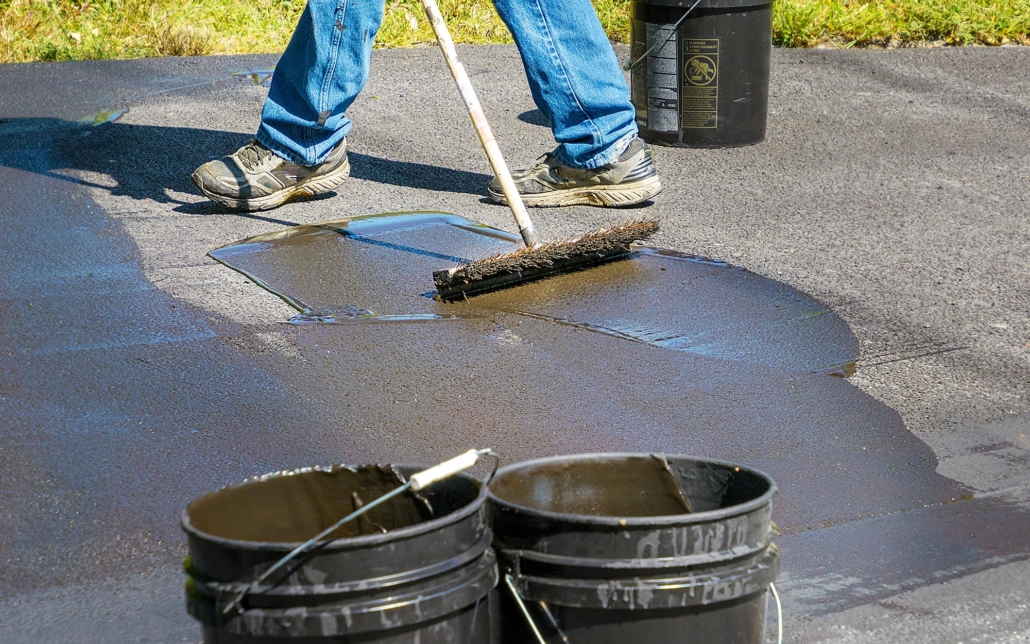Warm Mix Asphalt: A Lasting Option for Pavement
Hot Mix Asphalt (HMA) has actually arised as a leading lasting option for pavement solutions, supplying a myriad of ecological advantages and ingenious modern technologies. Its capacity to recycle materials and decrease energy usage offers an engaging instance for its adoption in roadway building and construction jobs. The lasting efficiency and toughness of HMA make it a favored option for framework development. As the need for green building and construction practices expands, exploring the nuances of HMA's sustainability can offer valuable insights into the future of sidewalk solutions.
Environmental Advantages of Hot Mix Asphalt

Additionally, Warm Mix Asphalt aids to minimize urban warm island effects. Its dark color takes in sunshine, decreasing the quantity of heat showed back right into the atmosphere contrasted to lighter-colored sidewalks. This can lower ambient temperatures in metropolitan locations, lowering the need for air conditioning and ultimately minimizing power consumption.
In enhancement, Warm Mix Asphalt adds to improved stormwater administration. Its porous nature permits water to recharge and penetrate the pavement groundwater supplies, minimizing drainage and the threat of flooding. These ecological benefits make Warm Mix Asphalt a sustainable option for leading roadways and freeways.
Energy Performance in HMA Production
Is power performance an essential aspect in the manufacturing of Hot Mix Asphalt (HMA)? Absolutely. Power plays a substantial duty in the production of HMA, influencing both price and ecological sustainability. One crucial aspect of power efficiency in HMA manufacturing is the usage of warm mix asphalt (WMA) modern technologies (angled parking). WMA allows for the mixing and placement of asphalt at reduced temperature levels contrasted to typical warm mix asphalt, leading to reduced energy consumption during production. This procedure not only reduces fuel usage however likewise decreases greenhouse gas emissions, making it a more eco-friendly choice.
Moreover, innovations in plant innovations have actually led to more energy-efficient HMA manufacturing procedures. By optimizing energy use in HMA manufacturing, the market can minimize its carbon impact while preserving high-grade pavement products.
Recyclability of Hot Mix Asphalt
The recyclability of Warm Mix Asphalt (HMA) is a crucial aspect of its sustainability and long-lasting environmental impact. HMA is just one of one of the most recycled materials in the USA, with over 100 million lots of reclaimed asphalt sidewalk (RAP) being recycled annually in brand-new sidewalk construction. Recycling HMA uses numerous ecological benefits, such as reducing the demand for virgin materials, lowering power consumption during manufacturing, and reducing the quantity of waste sent to landfills.
The process of recycling HMA involves crushing the existing pavement, squashing it right into smaller sized pieces, and mixing it with brand-new accumulation and asphalt binder to produce a recycled mix. Generally, the recyclability of HMA plays a considerable role in promoting sustainable practices within the pavement market.

Long-Term Performance of HMA
Asphalt sidewalks demonstrate longevity and resilience over an extended duration, reflecting the long-term efficiency of Warm Mix Asphalt (HMA) In addition, discover here advancements in HMA modern technology, such as the use of polymer-modified binders and cozy mix asphalt, have further improved the longevity and long life of HMA sidewalks. By focusing on quality construction and maintenance practices, HMA proceeds to prove itself as a affordable and sustainable solution for durable pavement infrastructure.

HMA: Toughness and Sustainability
Demonstrating both sturdiness and sustainability, Hot Mix Asphalt (HMA) has come to be a cornerstone in the construction of resilient sidewalk facilities - regrading. HMA's durability stems from its capacity to hold up against heavy loads, extreme weather, and high web traffic volumes, making it a trusted choice for highways, freeways, and flight terminal runways. The make-up of HMA, which commonly consists of accumulations, binder, and filler, plays a vital duty in improving its longevity and resistance to damage
Additionally, HMA's sustainability depends on its find recyclability and energy-efficient production process. The ability to reuse recovered asphalt pavement (RAP) in brand-new HMA blends lowers the demand for virgin materials and lessens the environmental effect of pavement construction and upkeep. Furthermore, the power performance of creating HMA hinges on its reduced mixing temperatures compared to other sidewalk materials, leading to lowered power consumption and greenhouse gas exhausts.
Verdict
In verdict, warm mix asphalt (HMA) provides a lasting solution for pavement with its eco friendly characteristics. HMA's recyclability, power efficiency in manufacturing, and long-term resilience make it an eco-friendly selection for roadway building and construction.
HMA is one of the index most recycled materials in the United States, with over 100 million loads of redeemed asphalt pavement (RAP) being recycled each year in new sidewalk construction.The procedure of recycling HMA includes grating the existing pavement, squashing it right into smaller sized pieces, and mixing it with brand-new accumulation and asphalt binder to produce a recycled mix.Asphalt sidewalks demonstrate toughness and durability over an extensive period, reflecting the long-term performance of Warm Mix Asphalt (HMA) Furthermore, innovations in HMA modern technology, such as the usage of polymer-modified binders and cozy mix asphalt, have actually further boosted the sturdiness and longevity of HMA pavements. The capacity to reuse redeemed asphalt sidewalk (RAP) in new HMA blends reduces the demand for virgin products and minimizes the ecological effect of sidewalk construction and maintenance.